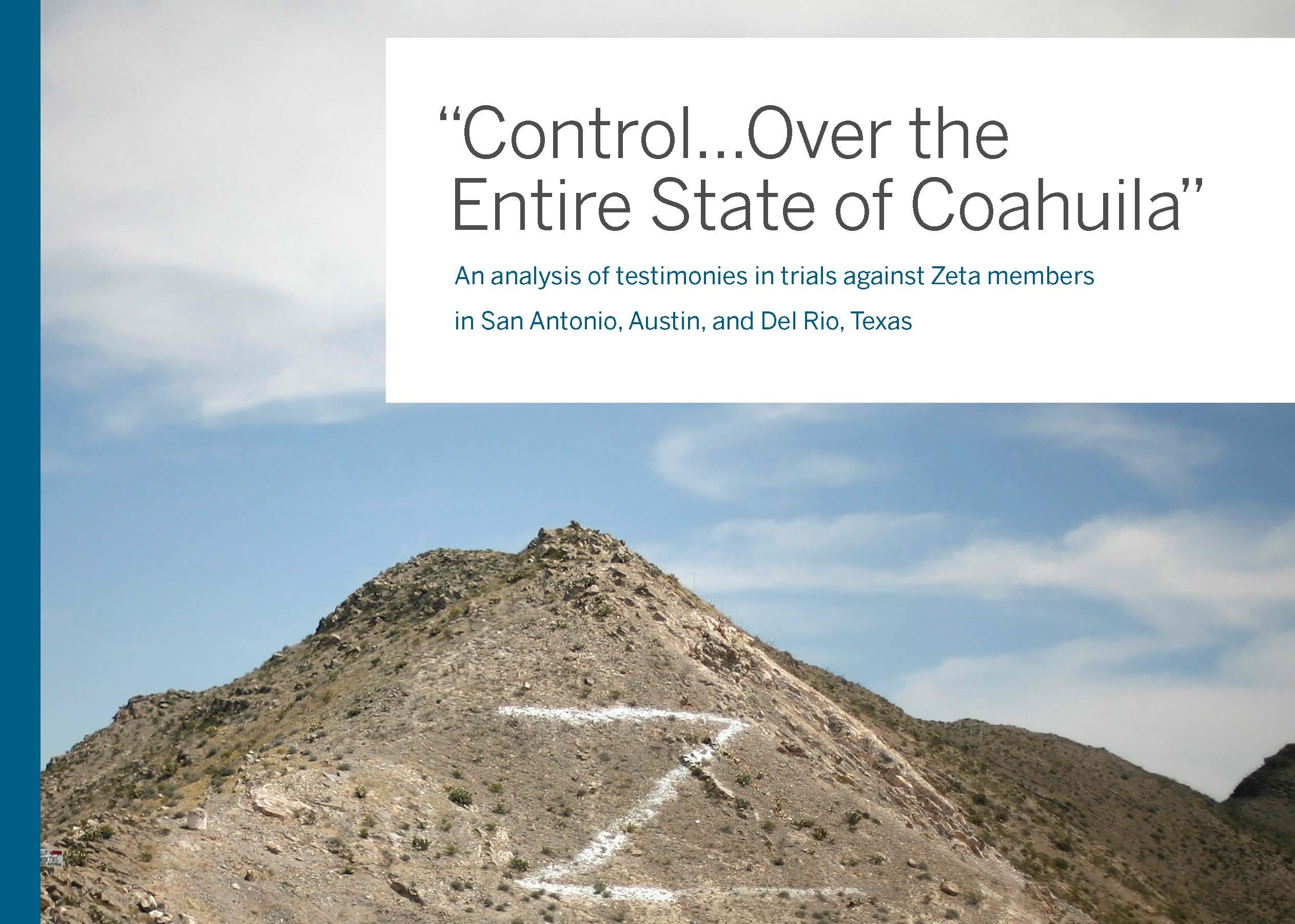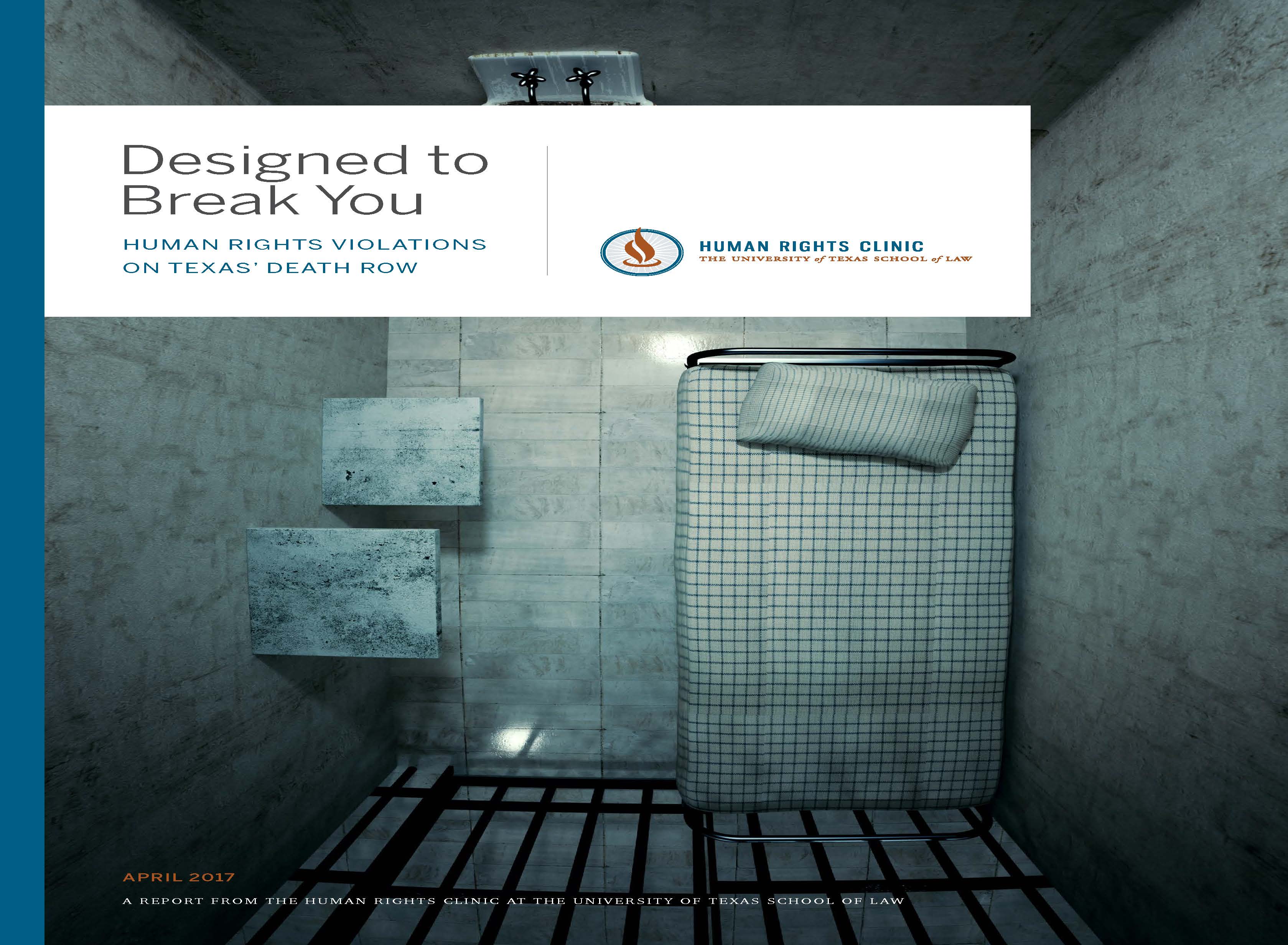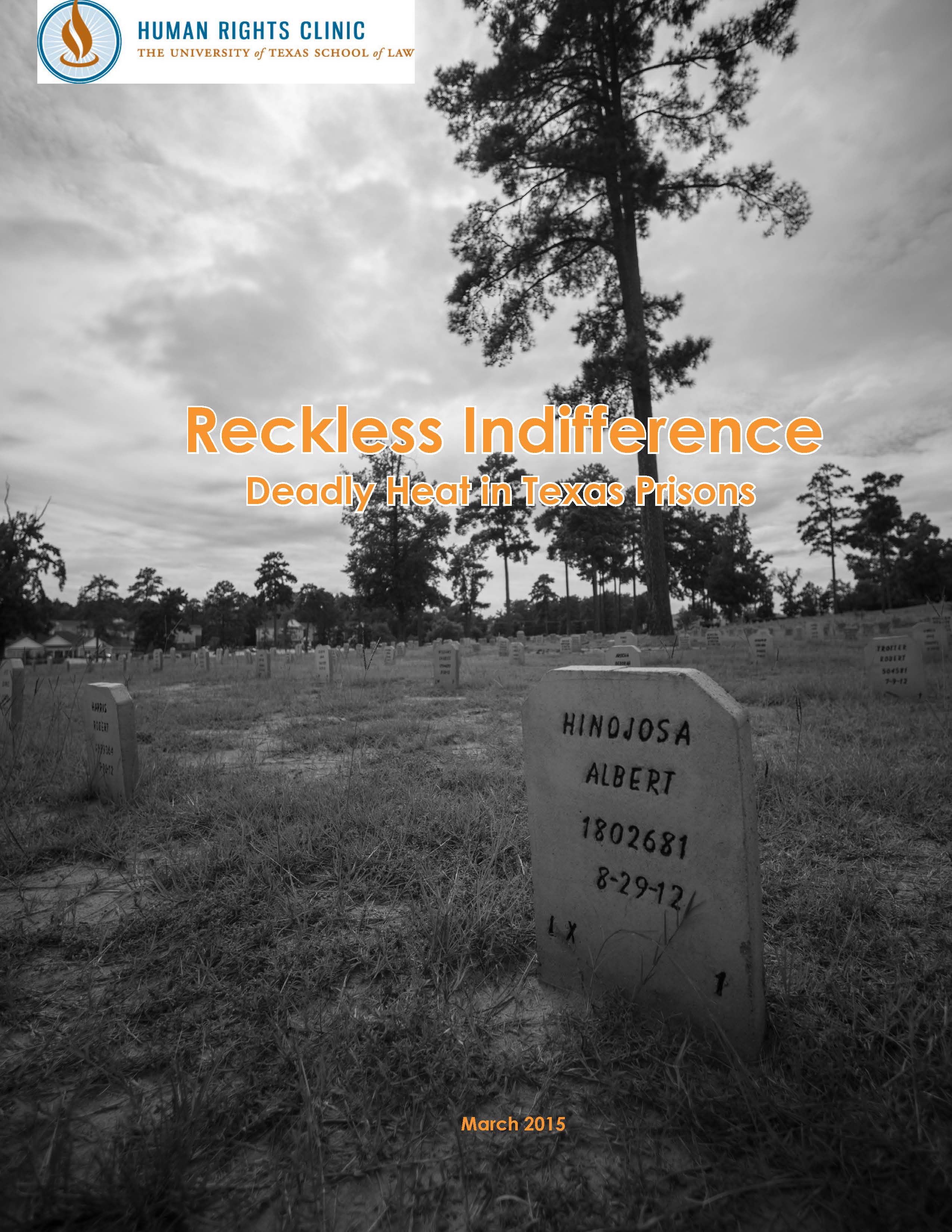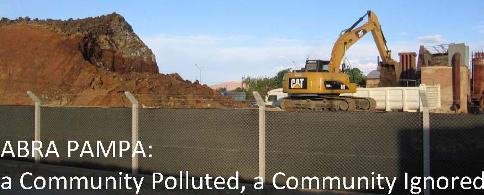-
January 23, 2018
The Clinic evaluated the Texas Bar Rules of Disciplinary Procedure in light of what guidance they provide to attorneys dealing with international human rights issues. In particular, the Clinic compared and contrasted the Texas Bar Association’s rules with the United Nations Guiding Principles on Business and Human Rights. During fall 2017, the Clinic prepared a […] -

November 6, 2017
Human rights abuses and state complicity in Coahuila, Mexico
The Human Rights Clinic has compiled a report based on analyzed witness testimonies from three U.S. federal trials. Between 2013 and 2016, Zeta members were put on trial in Austin, San Antonio, and Del Rio for crimes of homicide, conspiracy to import drugs and weapons, and money laundering. The report, titled “‘Control…Over the Entire State […] -

April 24, 2017
Human rights abuses in the context of the imposition of the death penalty in Texas
The Clinic researched the capital punishment system in Texas, publishing a report detailing the chronic overuse of solitary confinement on Texas’ death rows by the Texas Department of Criminal Justice (TDJC). The report, titled “Designed to Break You: Human Rights Violations on Texas’ Death Rows,” details how TDCJ’s practice of holding prisoners in mandatory solitary […] -

May 24, 2015
Since 2007, at least fourteen inmates incarcerated in various TDCJ facilities across the state of Texas have died from extreme heat exposure while imprisoned. TDCJ inmates and many TDCJ personnel are exposed to dangerously high heat levels on a regular basis. This practice violates individuals’ human rights, particularly the rights to health, life, physical integrity, […] -

May 1, 2015
USA: Freedom from Domestic Violence as a Human Right in Travis County and Austin, Texas
The Clinic, in partnership with the Domestic Violence Clinic, the Legislative Lawyering Clinic and the Austin/Travis County Family Violence Task Force, is promoting the adoption of City of Austin Council and Travis County Resolutions on Freedom from Domestic Violence as a Human Right. On April 8, 2014 the Travis County Commission and on April 17, […] -

April 25, 2015
Metal Huasi, a Foundry/Smelter company, operated in the town of Abra Pampa, Jujuy, in Northern Argentina, from the 1950s until 1986. There were three areas within the town where the smelting plant’s waste was deposited. Because of that, there are high levels of contamination and lead in the blood of Abra Pampa’s residents, particularly the […] -
April 24, 2015
USA: Advocating human rights in the southern border of Texas
As part of the working group on Human Rights and the Border Wall, students wrote a memoexploring possible areas for human rights advocacy in front of the Inter-American Commissionon behalf of a coalition of border residents opposed to the construction of the wall between theU.S. and Mexico. In June 2008, the UT Working Group published […] -
April 24, 2015
IACHR: Study on the pace of adjudication of the Inter-American Commission on Human Rights
The report “Maximizing Justice, Minimizing Delay: Streamlining Procedures of the Inter-American Commission on Human Rights” is the result of two years of the Clinic’s work based on statistical analysis and interviews on the duration of the procedure of the Inter-American Commission on Human Rights. It contains a serious and profound diagnosis of the current backlog […] -
April 24, 2015
WGEID: Supporting the Working Group on Enforced or Involuntary Disappearances
Students worked on the issue of enforced disappearances. During different semesters Clinic students approached the problem from different perspectives, at times focusing on children, women, the situations in particular countries, or the operations of the Working Group. At times the Working Group has used materials prepared by the Human Rights Clinic about disappearances affecting children […]
